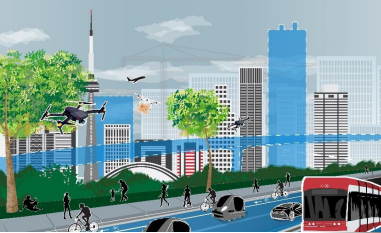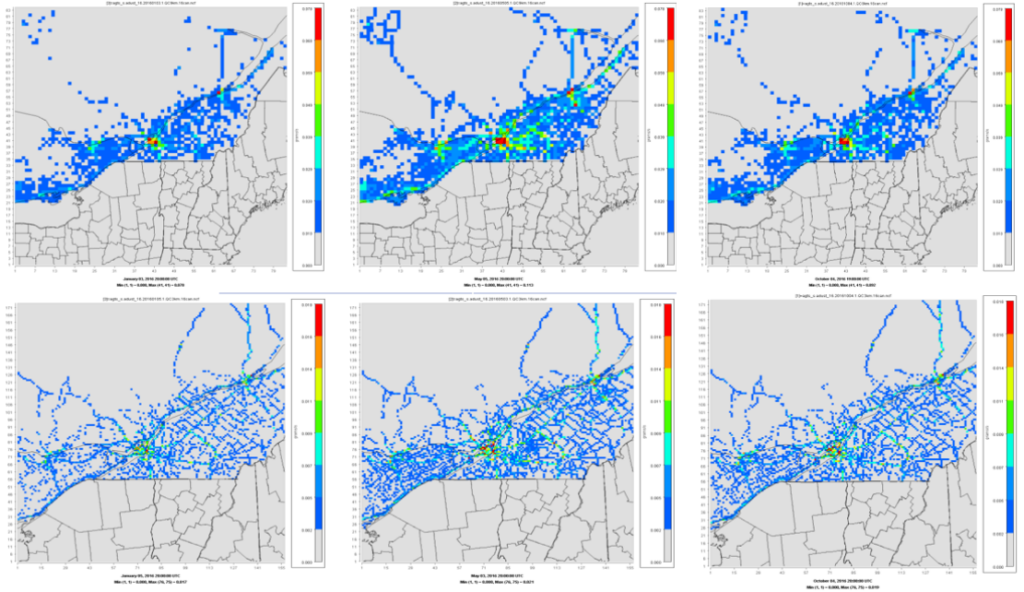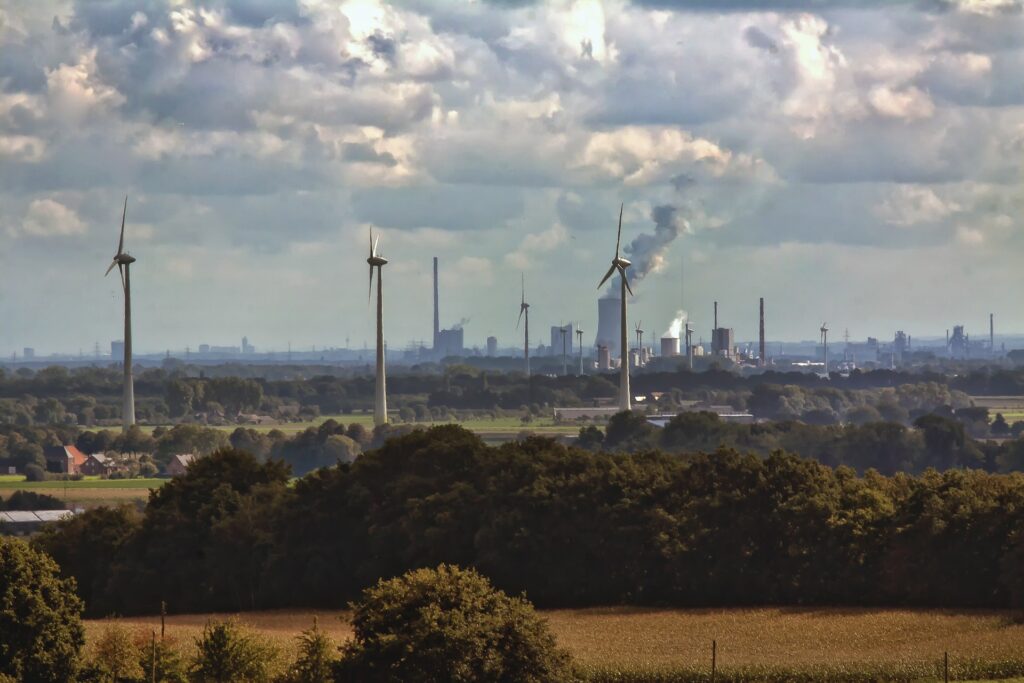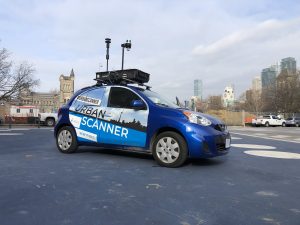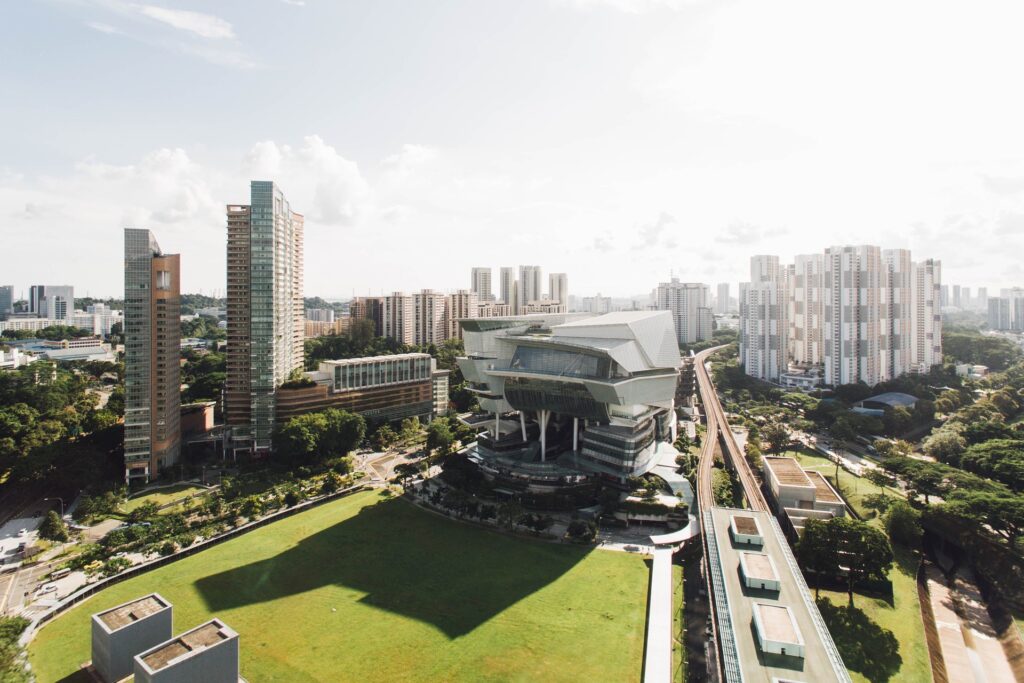Research
Themes
Research Pillars


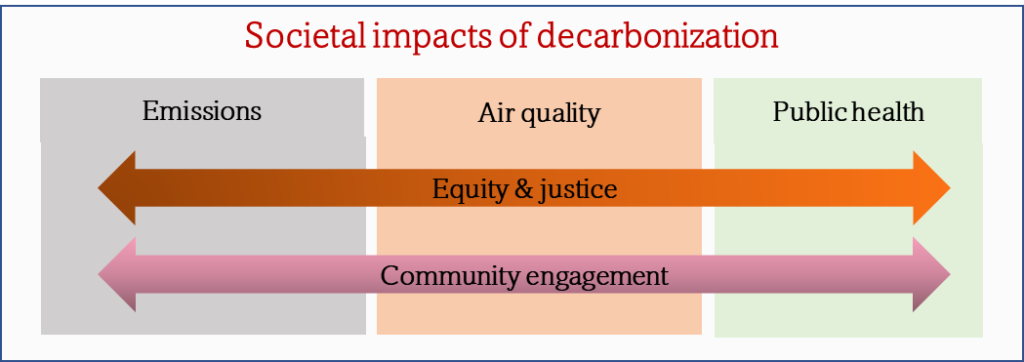


A flowchart of research pillars: Studying transport innovations (transportation services, infrastructure, and vehicle technologies); Transport innovations shape travel & consumer choices; and Societal impacts of decarbonization (emissions, air quality, public health, equity & justice, community engagement)
Transportation Services
Positive Zero researchers focus their research on advanced public transit systems and have mapped out the greenhouse gas (GHG) footprint of regional transit agencies. This system-by-system GHG emissions model aims to determine the emitter levels (low, medium, or high) of various transit agencies based on the metric tonnes of carbon dioxide equivalent (CO2eq) emitted from mobile sources. It is able to advance technology and ridership solutions aimed at GHG emissions reduction to achieve climate change objectives. This collaborative team also identifies the social equity impacts of new mobility technologies and offers recommendations on how future pilots should frame equity measurement to yield policy-relevant insights. There is a strong and ongoing need for our research to assess the impacts of different policy decisions being made by our government representatives and by industry every day. We work extensively with various actors involved in the freight system, such as shippers, carriers, and logistics firms, to develop behavioural models of their decision-making and cutting-edge forecasting models of commercial vehicle movements. These models are sensitive to government policy, changes in logistics processes, and changes in the global and regional economy, thus accelerating the development of a more sustainable, efficient, and equitable urban transportation system. (click on images below for more details)
Infrastructure
Positive Zero researchers investigate the state of knowledge in quantifying the embodied GHG emissions in transport infrastructure, with a focus on the relationship between the infrastructure we build and the society we create to better align infrastructure provision with sustainability. We will examine how revolutionary technologies affect our cities. Our multidisciplinary team will create models and methods to quantify their impacts on our transportation systems, our future cities, and their economic, social and environmental sustainability. This includes addressing factors such as congestion, commuting times, urban sprawl, emissions and human health. The researchers also explore the delivery of large-scale transportation infrastructure projects through public-private partnerships, the development of innovative mixed-use buildings, and the effective integration of infrastructure into the fabric of cities. We prioritize GHG mitigation strategies using system-scale environmental sustainability analysis based on a range of tools from engineering, science, economics, and public policy to provide quantitative analysis to guide environmental policy and decision making. The interdisciplinary research involves developing and applying life cycle assessment and techno-economic methods incorporating uncertainty to evaluate the technical and externality impacts of conventional and alternative energy and transportation systems and elements of the built environment. The research projects advance scientific and engineering knowledge in the developing field of systems analysis for sustainable engineering. The insights have been incorporated into public policies and informed industry stakeholders for building sustainable and resilient cities. (click on images below for more details)
Vehicle Technologies
Positive Zero researchers conduct leading-edge research aimed at examining how disruptive innovation in vehicle technologies influence our cities and use advanced models and methods to quantify their impacts on our transportation systems, our future cities, and environmental sustainability. The researchers focus on developing system-level optimization models to support the design, evaluation, and implementation of policies, incentives, and investments required for broad adoption of fuel cell vehicles (FCVs), hybrid gas-electric vehicles (HEVs), full-electric vehicles (EVs), autonomous vehicles (AVs), and connected vehicles (CVs) over medium to long-term planning periods. We analyze and quantify transformation within transportation systems in the era of advanced technologies and automation, with the goal of guiding the inevitable transformation in socially positive directions. The researchers aim to maximize the automation of both vehicle and infrastructure, as well as build the foundational analytical tools necessary to measure and assess the performance of a full-scale regional transportation system. We respect, protect and improve the economic, social and environmental sustainability of our future cities. (click on images below for more details)
Travel and Consumer Choices
Positive Zero researchers’ studies include the development of a comprehensive, integrated, microsimulation-based software environment that provides an efficient, highly extensible framework for modelling human socio-economic activity. The modelling system involves state-of-the-art object-oriented programming methods, development and implementation of a wide variety of behavioural sub-models, use of a variety of novel data collection procedures to obtain the dynamic, micro-level behavioural data. This integrated urban model holds the promise of providing accurate, policy-sensitive estimates of travel demand, and consistently and comprehensively exploring the intended and unintended, interconnected consequences of transportation and land use policies in complex urban regions. The research team also has specific expertise in the empirical analysis of the relationship between urban form, transportation system configuration, and the energy efficiency/environmental sustainability of urban transportation systems. The researchers build mathematical, behavioural models to ascertain how human beings move from one location to another, and the multiple ways in which people respond to changes in the urban infrastructure. We bring knowledge from various disciplines (psychology, geography, economics, computer science, and system control) to develop appropriate planning methodology and policy analysis tools to provide realistic prediction and forecasting capacity for short-, medium- and long-term planning exercises. (click on images below for more details)
Emissions
Positive Zero researchers explore the interactions between the daily activities, travel patterns, driving behaviours, individual characteristics of urban dwellers and the generation and dispersion of traffic emissions from private and commercial vehicle movements in urban environments. This multidisciplinary team has considerable experience in on-road emission measurements and in modelling exhaust emissions from conventional and alternative fuel vehicles based on pioneering data analysis and modelling approaches. The researchers have designed a framework to improve the robustness of regional energy and emission modelling by applying life cycle assessment and incorporating uncertainty in the analysis of electrification of urban transportation systems. This framework can adequately inform decision-makers during the policy appraisal process in local and regional contexts. The research team focuses on the optimization of regional electric vehicle charging schedules based on a marginal emission model with the objective of minimizing GHG emissions from electricity generation. We also investigate the relationship between the infrastructure we build and the society we create and develop a novel and comprehensive framework for assessing the life cycle impacts of transport infrastructure to facilitate holistic assessment. (click on images below for more details)
Air Quality
Positive Zero researchers have extensive expertise in chemical transport modelling (CTM) and have used CTMs to assess the impacts of decarbonization scenarios. This modelling capability has been used to assess the potential impacts of electric vehicles on air quality, health outcomes, and social benefits. The research team has a thorough knowledge of chemical information and reaction mechanisms of air pollutants through controlled laboratory experiments and has wide-ranging experience in field measurements and air pollution monitoring using leading-edge instrumentation, innovative experimental methods, and various start-of-the-art data mining and space-time modelling approaches. Our research involves characterizing near-road air pollution, identifying their sources and chemical properties, understanding how concentrations vary in time and across cities, and developing resulting air pollution exposure maps for residents in urban environments. We aim to make key connections between emissions of pollutants, the quality and composition of urban air, and the impacts on human health and the environment. The research findings will enable both government and industry make informed decisions to reduce the adverse impacts of air pollution on health and climate. (click on images below for more details)
Public Health
Positive Zero researchers have led a variety of multidisciplinary studies on source apportionment, emission factors, characterization of near-road air pollution, and development of urban exposure maps for several Canadian cities. The resulting insights have enabled numerous meta-analyses of epidemiological studies to uncover relationships between transportation-related air pollution, respiratory and cardiovascular health by linking cohort data and exposure surfaces. The researchers recently have incorporated a wider variety of environmental factors recognizing that our health results from the combined effects of multiple exposures throughout the life course. To advance Canadian research in considering multiple exposures, including air pollution, a consortium of scientists in Canada has started a pan-Canadian data and methods platform to better understand the relationship between urban living and human health. It aims to bring together diverse spatially-resolved environmental data, including many parameters related to the urban population’s interaction with the transportation system and individual transport, including access to active transportation options. We have expertise in scientific assessments and environmental health promotion to inform policy nationally and internationally and have advised multi-stakeholder groups shaping policy to efficiently and sustainably reduce the adverse influences of air pollution on health and climate. (click on images below for more details)
Equity and Justice
Positive Zero researchers investigate inequalities in the planning, development and governance of regions with a focus on economic development, housing and transportation. We focus on a broad array of research projects related to inequality, including the use of big data to predict gentrification, the fiscalization of land use, urban displacement, competition in the electric vehicle industry, job creation on industrial land, and accessory dwelling units as a smart growth policy. The research team has exceptional knowledge of the relationship between climate change and tax policy, which promotes evidence-based public policy and creative thinking for the public good. We explore patterns of residential, commercial, and industrial displacement, as well as policy and planning solutions. Current research projects include the potential for gentrification and displacement near transit-oriented development, more effective planning for affordable housing and economic development near transit, the relationship between the arts, commercial and residential revitalization in low-income neighborhoods, and the role of green jobs and industrial land in regional economies. The researchers leverage urban data and technology assets to improve policy and decision-making and collaborate with urban planners and community innovators to promote equity and justice in urban development. (click on images below for more details)
Community Engagement
Positive Zero researchers’ studies involve the intersection of climate change mitigation, adaptation and sustainability; the use of visualization, modelling, and citizen engagement to explore sustainable futures; sustainable buildings and urban design; the role of the university in contributing to sustainability; creating partnerships for sustainability with non-academic partners; and, the intersection of sustainability, social and technological change, behaviour change, and community engagement processes. The research team leads and supports efforts to improve the environmental and social sustainability of health systems, through research, practice change and policy advocacy, bringing a critical political economy perspective to the analysis of technological innovation and sustainability transitions. We examine how evidence affects global policy agendas related to employment, other determinants and health equity in the context of sustainable development goals. This work addresses governance-related questions about the roles of public/private partnerships and global institutions in the promotion of health, health equity and the prevention of non-communicable disease and related risk factors. We have been making contributions to knowledge translation, working with federal, provincial and municipal public health, non-governmental organization (NGO) partners, and local communities. (click on images below for more details)









